Do you want to know how much I love short stories? There are short stories they used to have in those grade school readers that I still remember to this day. I used to be thoroughly engaged by those snippets they’d have in the standardized reading comprehension tests in school.
I know it’s not for some, but that’s purely individual taste. Some people don’t want to start getting into something just to have it end. I love the beauty of having something so complete and concentrated in a small package like that.
I’ve been asked to blog from time to time about tips on writing short stories, such as for this year’s Harlequin Mills and Boon’s New Voices Contest: Less is More — Making Every Word Count and I wrote a similar, but more detailed post upon the release of my first short, The Taming of Mei Lin: Ruby Slippered-Sisterhood: Writing Short and Not-So-Sweet
But I’ve come to realize that though there’s some good general advice there about keeping things tight, I really completely missed the mark. The closest I came to the right answer was to say the game is already won or lost in the plotting. Because making the scenes critical and layered or “neuron rich”, as I like to think of it, is good craft-wise, but it’s not really what makes a good short. A good short aims to SAY SOMETHING.
Say something bold. Add to the conversation. Do something no other short has done. Make the reader feel and think. Strive.
A memorable romantic short needs to hinge itself upon THEME more strongly than a novel. More not less. And the theme of “Love conquers all” or “Love is found in unexpected places” is but a mere a hand wave to the genre and nothing else. I like how author Sela Carsen said it in a workshop about writing short: A novel is a necklace with a string of diamonds connected. A short needs to revolve itself around one perfect center stone. And yes, on top of all that — the hero and the heroine still need to overcome and fall in love.
And I think that’s what I see missing from a lot of short stories in romance. External plot, but no theme. I think it’s a fallacy to think you can’t tell a rich, complex and engaging story in a short. That you have to get rid of detail and theme because it’s got to be all romantic storyline. In the end, this robs you of the romantic potential instead of enhancing it. In fact, theme may be equal or more important than…*gah* do I dare say?…character when constructing a short story. Or at least the characters should serve the theme.
I used to write short stories all the time as a kiddo in those little notebooks that no one got to read except for maybe Little Sis. Most of those shorts were sci-fi or speculative fiction. Some fantasy. A few whimsical slice of life sort of things. I had to learn how to craft a novel in terms of pacing and development because I was used to short little glimpses, abrupt scenes, etc.
See, it’s another game in the speculative fiction arena. You’re trying to be a little unexpected and twisty. It’s okay to establish a new world, but leave a bunch of open questions at the end, a la Twilight Zone. You can end on a punchline or a revelation.
In romance, we expect readers want a satisfying coming together of hero and heroine. They should overcome some obstacle and reach a reasonable Happily Ever After or Happy For Now conclusion. For that reason, a lot of romantic shorts I read feel like slaves to that HEA and nothing else. They’re pleasant, cute, warm, even sexy. The worse of them fall horribly flat, but even the best of them put forward a satisfying, but altogether forgettable tale. They don’t SAY ANYTHING new.
To make matters more sticky, there’s now a trend of using short stories to introduce longer series. The short serves as a gateway into the worldbuilding or the characters of this series. And that’s fine. Often these shorts are free so there’s no reason to complain, but these stories seem to give up their own potential and power even more. Again, they can be well-written, sexy, even a little interesting, as they’re meant to be, but as a reader of shorts, I’m still disappointed.
Now romantic novellas, you get some room to play so those tend to be able to follow a condensed romance novel structure and still be successful. When I’m looking specifically at shorts, it’s rare to see something sparkly emerge in less than 20, 000 words. Something that shows a true unique point-of-view as they say in Project Runway speak. 🙂
That’s why I’m so impressed with Stephanie Draven’s steamy stories in the Nocturne Bites line. (Wild, Tethered, Bound – Midnight Medusa – Siren Song) Her theme is that war makes men into monsters–literally. The stories make bold statements about war and about healing, and they enhance the themes with symbols from Greek mythology, modernized in a creative way. They all have steamy hero meets heroine love stories in them as well.
I loved Caitie Quinn’s sweet romantic short, “It’s In His Kiss”, because it may seem like a cute, sassy girl’s night out on the surface, but it slips effortlessly into exposing those “friends” who aren’t really your friends. It explores those nights on the town where you’re supposed to be having fun, but you feel just awkward and inept instead because you’re not having fun.
Diane Gaston’s The Unlacing of Miss Leigh, explores the theme of loneliness and the alienating nature of physical imperfection. She admits to being inspired by the Phantom of the Opera, but the tale is by no means a retelling of Phantom. On the surface, it’s two people in a classic romance set-up, but the emotions go much deeper.
Right now I’m writing a short story about a journey to the land of Khitan (later the Liao Empire), a now extinct power located to the north of Tang Dynasty China, which evolved from the Han Dynasty until the 13th century, about at the time of the rise of Genghis Khan’s empire. It’s both a coming home story and a going away story. A story about “civilized” life vs. the frontier. It’s a love story too.
I’ve read over 500 pages of historical research. I’ve polled people about horsemanship. Studied pictures and artifacts. There are descriptions of food, customs, clothing and nomadic life. There are action scenes and love scenes and hints of the little known political structure of pre-dynastic Khitan that I worry about people calling me on when I know that most likely no one will.
In the end, it has to fit into 15,000 words or less because I’m writing it for the Harlequin Historical Undone line. But I’m not really worried about writing tight and making scenes count so it’ll fit the shorter length. I’m more concerned about the story saying something.
This is why I say I got it all wrong when advising people how to write short. There seems to be a tone of “do less” in those blogs I wrote, when what I really should have said is DO MORE.
*One of my favorite short stories isn’t quite a romance in the romance genre sense of the word because it has a maudlin tone and ending without the traditional HEA. It’s by Ray Bradbury and it’s titled “The Laurel and Hardy Love Affair.” It’s about memories and love that was perfect in a moment, even if that moment is gone. I can visualize each scene in the story perfectly. I can’t read it without tearing up.
I recently checked out the word count to see how many words Bradbury needed to jerk my heart strings like that. Did he write it in under 15, 000 words?
The actual word count was under 1500 words.
I am but an egg.


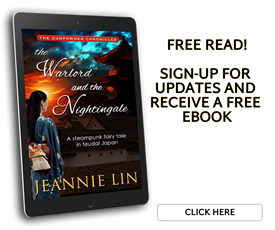
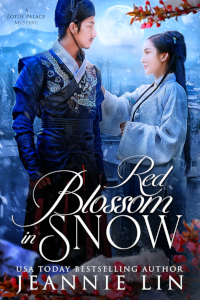
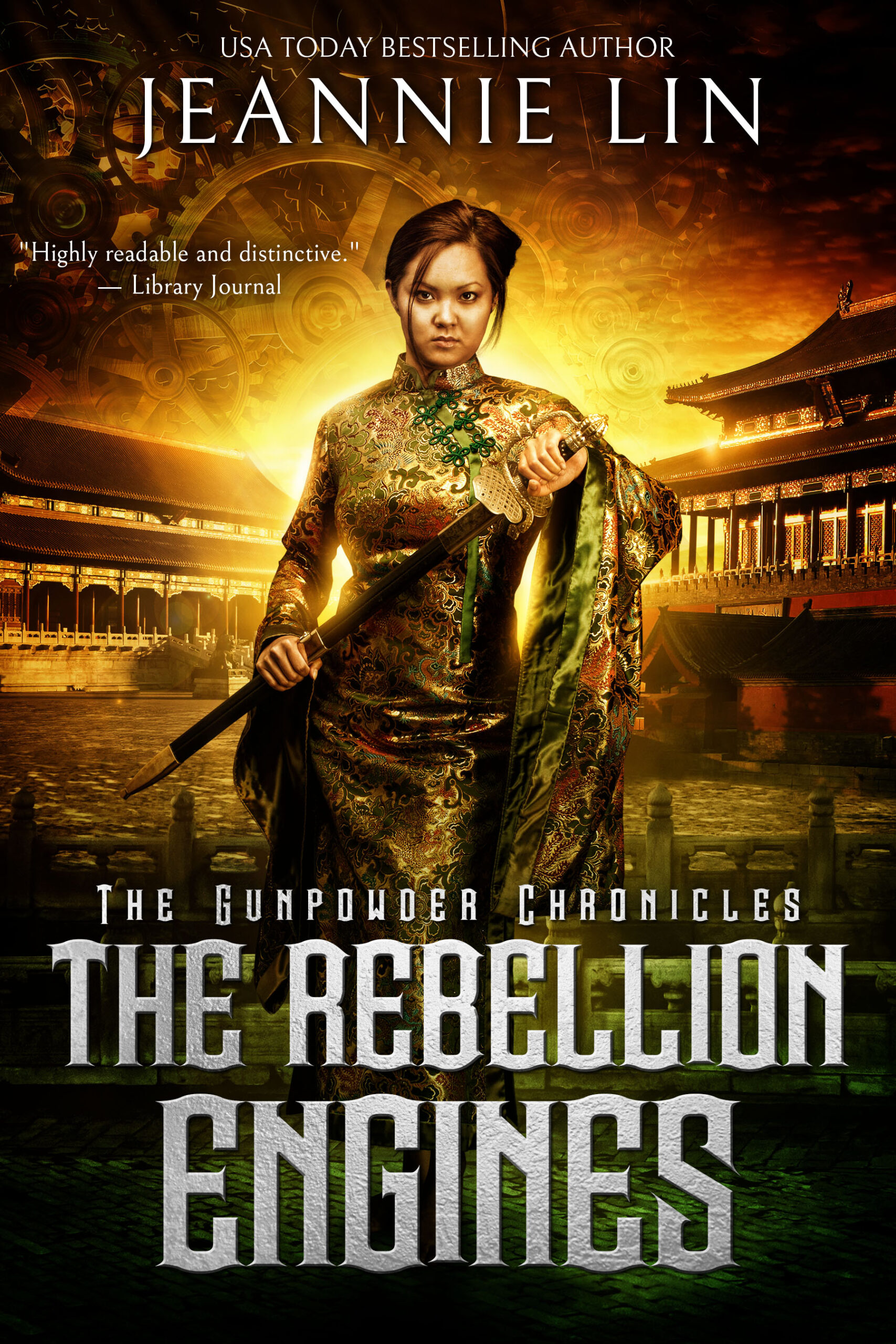
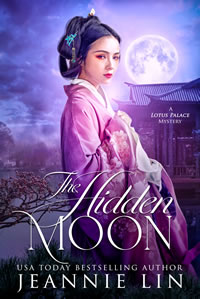
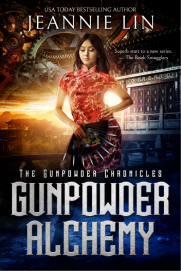
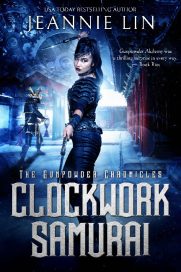
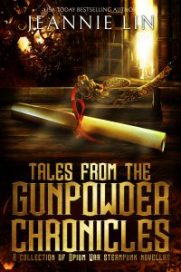
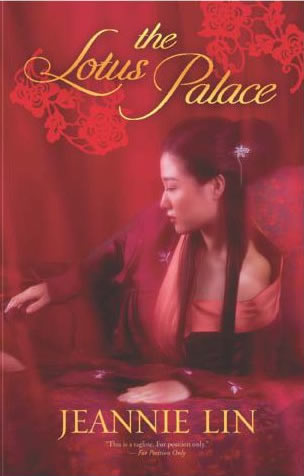
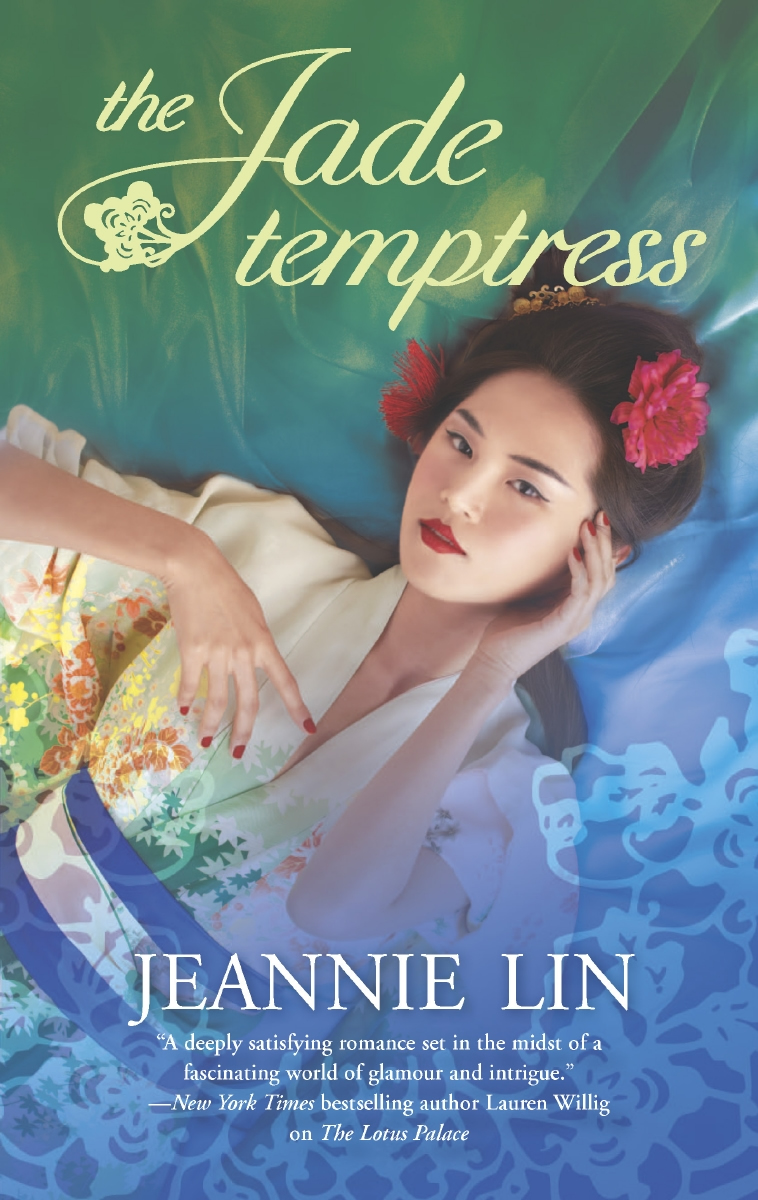
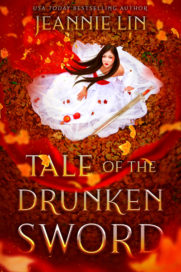


Dec 12, 2011 @ 16:43:46
Hi Jeannie,
I guess it’s finally time for me to comment after following your blog silently for a long, long time (perhaps 8 months?). I was reading through your latest entry as a way to procrastinate during finals week, haha. I started reading it calmly and suddenly my eyes popped as I came to the part where you announced that you’re writing a short story set in the Khitan Empire. I am deeply fascinated by Khitan history and culture and have been working on a novel that’s mostly set in the Khitan Empire for 20 months already. Unfortunately, since I’m so busy with school and work, I’ve only made 60,000 words of progress, and I’ve barely covered a fourth of what I’ve outlined. I’ve done extensive research and poured through primary texts like the Liao Shi, which is quite a pain to read in Classical Chinese. There are many periods in Chinese history that I’ve taken great interest in, such as the Warring States period, the Han Dynasty, the Three Kingdoms, and the Qing Dynasty, and I’ve always loved to learn about ancient non-Han people like the Xiongnu, Jurchens, and Mongols, but none have captivated me as much as the Khitans. Finishing my novel and getting it published has always been a dream of mine, especially since pretty much no English fiction set in the Khitan Empire exists. May I ask what year(s) your short story is set in? (I’m just curious to know which historical figures existed at that time, though of course I suppose that may be a spoiler.) Anyway, I wish you luck with your story and with your twins! I’m just so surprised that someone decided to choose this setting because so few people, even those who are Chinese, have expressed much interest in the Khitans, and here I am like a crazy person obsessing over and writing about Khitan generals and emperors. :p
Dec 12, 2011 @ 17:27:27
OMG! OMG! Oh happy day!
My story is set in 824 AD, so it’s a murky period in terms of Khitan/Tang relations. The premise is based on a fictional alliance bride who is sent to Khitan so the story is told more from a Han/Chinese perspective than a Khitan one. I believe that at this time, the Tang were not as interested in forming alliances or taking tribute from Khitan as they were vassals of the Uighurs (based on my scant research as I don’t have the language ability to read primary resources). But Khitan always carefully cultivated relationships with both the Uighur and the Tang empire. I have Zhaogu khagan named as the leader of the confederation and a fictionalized version of him will appear in the story, but truly I have no idea what he was like and hoped no one would be the wiser. I mean, what are the chances, right?
I also extrapolated that the Yelu clan, which founded the Liao Dynasty, was not in power yet, but should have been on the rise.
So glad to meet you! I wish we had made contact before I turned in revisions to my next novel, My Fair Concubine, which takes place in Tang China, but makes many mentions of Khitan as a central plot point.
Dec 12, 2011 @ 17:28:53
Sherry — sorry, in my excitement I forgot to send my best, best wishes for the completion and eventual publication of your story!
Dec 12, 2011 @ 19:48:32
Hi Jeannie!
Ah, I would love to read your short story when it’s released, as I’m much more familiar with the history after Yelü Abaoji took over, and I definitely want to learn more about what happened before the establishment of the Liao Dynasty. I do love stories with heqin! I think that after reading 500 pages about Khitan history and customs, you probably know your early 800s era better than me, so I probably wouldn’t even see any glaring issues even if you completely fabricated people and events. 🙂
My story is set in 986-1011 A.D., and it’s also written from a Han perspective. Between the years of 989-998 A.D., my main character lives in Great Song, so it’s not entirely set in Liao. My main character’s adolescence was spent in Eastern Liao, which at that time had adopted Han Chinese as its official language, so I’m currently stuck on how to let her learn the Khitan language so quickly on her way to the Supreme Capital. Hehe, oh the mundane troubles that writers face. 🙂
Ah, I probably should’ve dropped by earlier, but I never knew you were interested in the Khitans until now. I’ll be sure to follow you on Twitter as soon as my finals are over at the end of this week. I’ve read all the excerpts of your novels (and wow, you’re really on a roll with so many publications already), but never read them because I generally don’t read anything steamy even though I love historical fiction, haha.
Thanks a lot for the well wishes! I just remembered a wuxia novel called The History of the Tang Dynasty Two Dragons…doesn’t that fit your love of the Tang Dynasty and the possibility of having two dragons quite well? Hehe. 🙂
Dec 15, 2011 @ 08:26:21
Short stories are not really something that I’ve delved into too much. I do want to start diving into them. I think in a way, short stories might be more difficult to write than full length books since you have less time to really set the scene.
I’m really intrigued by some of the stories you listed though. I think I need to try them out 🙂
Dec 24, 2011 @ 06:12:57
@Sherry – Yes, we must indeed chat.
@Meg – One of the things I used to lament being a lover of short stories was that it was hard to find someone else who’d read the same story so you could chit-chat about it. I think the ability to share and discuss is a big part of reading culture. But with e-books, I think the short story market is on the rise. A new dawn perhaps?
Jeannie Lin | Award-winning historical romance author
Sep 05, 2012 @ 11:56:16
[…] I think this reflection here is in a way an extension of one I had written earlier about trying to do more in short stories, not less: Romantic short stories: Say Something […]